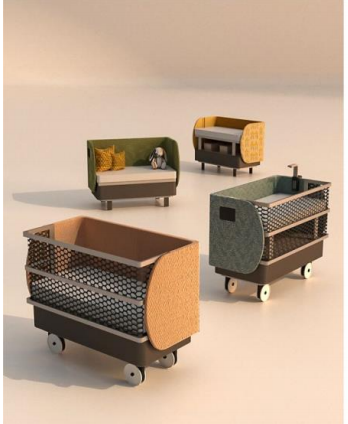Intelligent modular children's future design
DOI:
https://doi.org/10.52152/D11017Keywords:
Product design, Modularity, Children's Furniture, Adaptable design, Smart ChildcareAbstract
Nowadays, the digitisation of products occupies a very significant space in the product market, as incorporating new functionalities means satisfying new needs for users. Likewise, there is a debate between the programmed obsolescence of products that use technology within their useful life. This work aims to connect the benefits provided by technology within products by projecting a proposal that has a longer useful life thanks to the adaptation of the product to the user. It deals with the design of children's furniture, an intelligent cot, which adjusts to the needs of the first stage of life by including sensors and components that improve the baby's rest, and which, in turn, incorporates modularity in its design to be able to adapt to the following stages of the child's life up to the age of 12. The proposed methodology incorporates a series of methods and techniques that provide a 5-phase structure that includes a group of experts who work transversally in the product design process to strengthen decision-making and prioritisation of the needs raised. Several alternatives are developed and, thanks to the evaluation based on the needs extracted at the beginning of the process together with the design requirements, the one that best satisfies both areas is chosen.

Downloads
Published
Issue
Section
License
Copyright (c) 2024 DYNA

This work is licensed under a Creative Commons Attribution-ShareAlike 4.0 International License.


